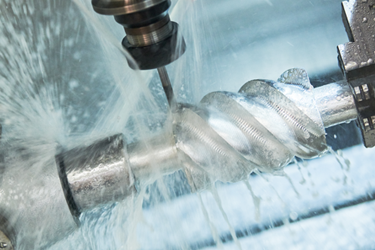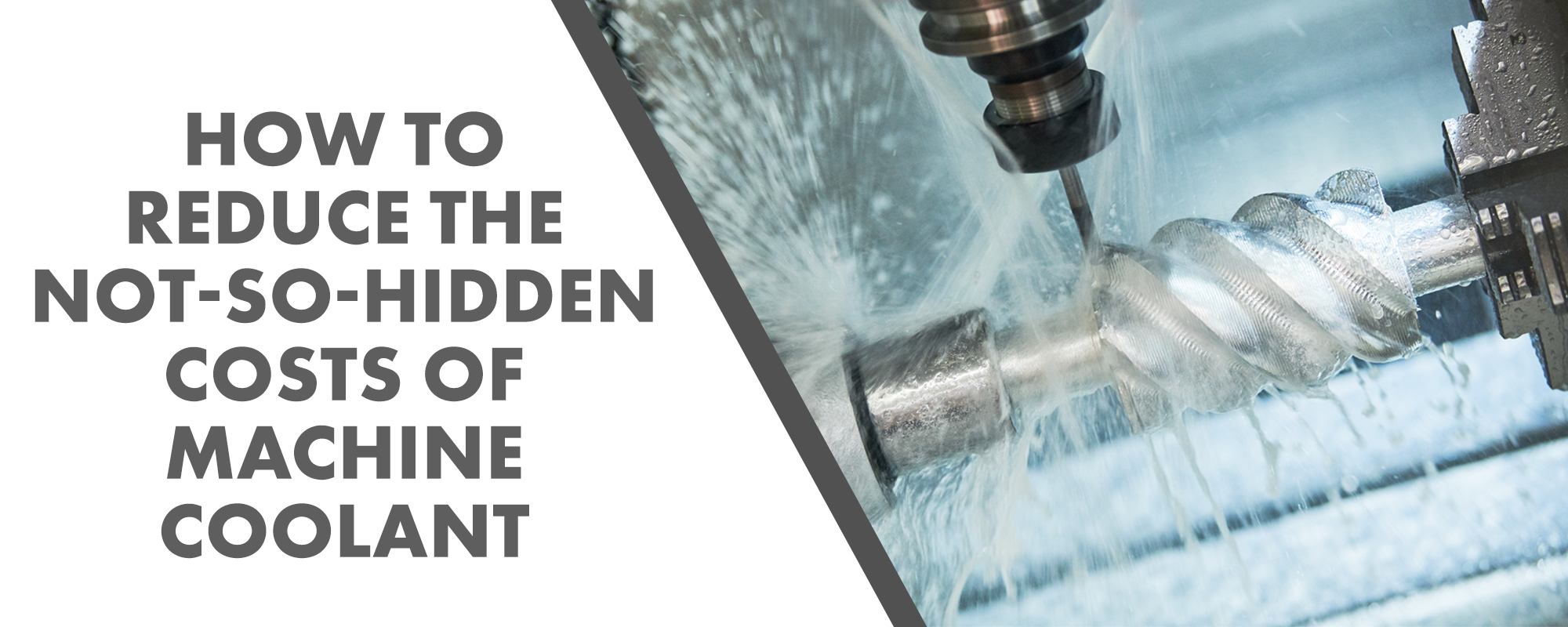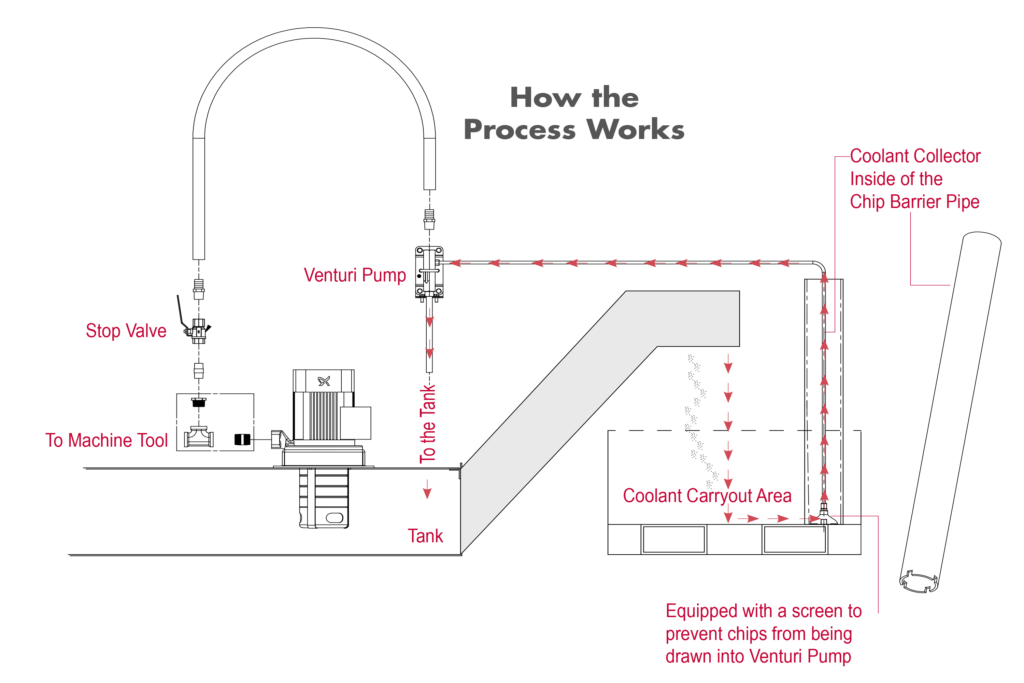Time is of the essence in the fast-paced business environment, and having a streamlined and efficient process for managing orders and inquiries is vital. The MyLNS customer portal is a crucial resource, earning praise from users.
More..CNC machine coolant is, of course, essential for efficient metal removal. Unfortunately, the benefits come with ever-increasing initial purchase and disposal costs. These costs impact the profitability of every production run and the ability to land jobs in a highly competitive market.
The good news is that machine tool coolant can have a longer useful life if adequately maintained throughout the manufacturing process. Here are four field-proven strategies LNS customers use to reduce coolant costs. As a bonus, applying these solutions extends tool life and reduces machine component wear.
Filtering Chip Conveyors Keep Fluid Clean
One of the most obvious ways to reduce coolant costs is by using filtering chip conveyors that keep fine particles from recirculating within the coolant stream. Not only do these particles contaminate coolant, but they can also damage machine sump pumps, impact tool life, and even affect part finishes. As a result, tanks must be cleaned, and coolant must be replaced, which is both expensive and time-consuming.
LNS offers filtering chip conveyors in 500, 140, and 50 microns. The MH Series filters coolant at either 500 or 140 microns, using easily interchangeable filter boxes that make it ideal for applications using mixed materials. For more advanced filtration, the Turbo SFcompact and MF4 chip conveyor filter coolant to 50 microns. In applications where space and cost are the most important factors, the LNS Turbo SFcompact is the ideal solution, using self-cleaning filter boxes to eliminate chip particles while using the smallest possible footprint and often fitting into the existing tank, which greatly reduces cost. In the most challenging applications, the MF4 chip conveyor is often the best choice. It uses a unique dual conveyor system, with the upper conveyor removing heavier chunks, stringy, bushy, and large chips, while the lower conveyor removes smaller particles and fines via the drum filter. All three LNS Turbo filtering chip conveyors keep fine particles from the machine sump to prolong coolant and pump life. Ask your LNS representative for the best chip conveyor for your application,
How Variable Volume Coolant Flow Extends Coolant Life
A high-pressure coolant delivery system that flows fluid at a fixed rate can deteriorate the coolant quality. For example, when using smaller tools, the coolant first flows through a pressure regulator or other device. This causes friction that raises the temperature of the coolant and can cause it to foam; both conditions reduce coolant life.
However, an LNS Chipblaster variable volume system automatically adjusts coolant pressure by sensing any change in the tool’s orifice diameter, adjusts motor speed, and pumps the optimum amount of coolant, thus maintaining proper coolant temperature that extends coolant life.
Challenging Materials Require Ultra-Fine Coolant Filtration
Cast iron and other materials that create very fine particles are particularly troublesome in high-precision work and for the life of machine coolant. The solution is the LNS Chipblaster CF-79 cyclone filter that delivers up to 100% coolant filtration to 10 microns and 95% filtration to 5 microns. Installed in the Chipblaster high-pressure system, the unit employs the cyclonic separation principle to force debris downward to a discharge port and into the ST 200 sludge tank. With no media bags to change, the cyclone filter extends coolant life by keeping harmful particles from recirculating.




